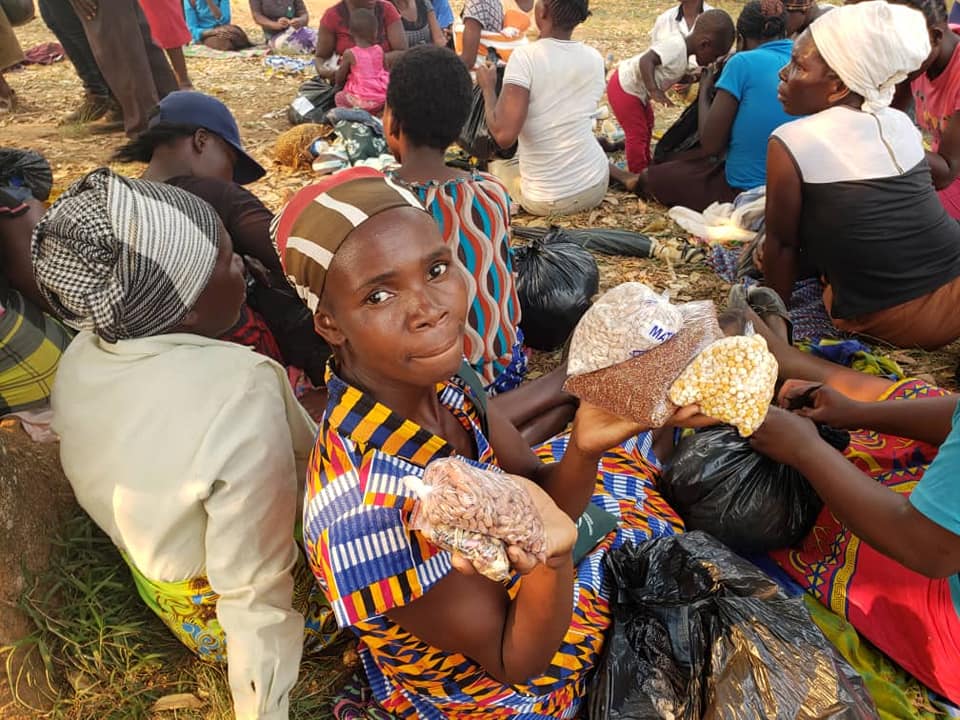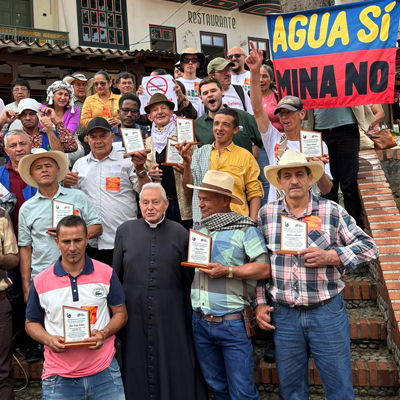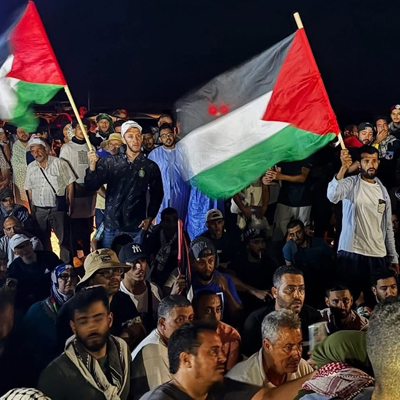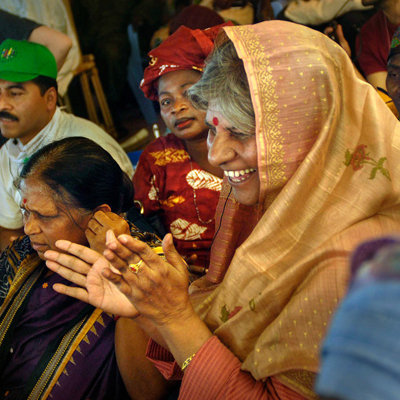The Right to Say NO
Rural Women’s Assembly fights against patriarchal culture and to maintain the integrity of African peasants and lands
 RWA Facebook, Nov 2019.
RWA Facebook, Nov 2019.
“We are the guardians of land, seeds, life and love” is the slogan of the Rural Women’s Assembly (RWA) of Southern Africa, a movement of rural women founded in 2009 with a membership of over 100 000 women, mainly farmers from South Africa, Mozambique, Malawi, Lesotho, Namibia, Swaziland, Mauritius, Zambia and Zimbabwe.
Their focus is on the defense of the commons and against encroachment of land and resource grabbing: “For the RWA, alternatives such as food and seed sovereignty are at the center of our struggles and campaigns,” said Mercia Andrews, regional convener for the Assembly.
Andrews is a feminist activist deeply involved in the movement for land and agrarian transformation in South Africa. Real World Radio interviewed her for the Nyéléni newsletter, asking her about how social movements are fighting for Food Sovereignty and facing the rise of conservative and fascist sectors. “As the RWA, we are building a feminist methodology that attempts to challenge patriarchy,” she said.
Currently, Andrews is the director of the Trust for Community Outreach and Education (TCOE), a land rights/rural development NGO based in South Africa. Their focus is on movement building and agrarian transformation.
In Southern Africa, contrary to what is currently happening in Latin America or Asia, “there isn’t a rise of neofascist regimes or a rise of the extreme right wing parties or right wing governments,” she stressed.
In fact, “what we have in the region are dictatorial governments that have been in power for a very long time,” she continued. “In (Mauritius) and South Africa in particular, we have vibrant and strong social movements. We also have a labor movement that is quite radical even though it’s on its backfoot at the moment, but we have history and a tradition of resistance.” However, “this is not the case in most countries in the region. What we do see now is the rise of militia groups that call themselves Al-Shabaab and so on (…) Beyond that movements are generally weak, most of these are one party States, and even where there are multi party regimes, these are extremely weak.”
Rural women are resisting against the patriarchal advance of these groups and the dictatorial governments, says Mercia.
RWA is taking this idea of “the right to say NO” to different regions, building the capacities of women to organize themselves to resist, and begin looking at litigation strategies.
For example, in South Africa, one of the organizations RWA works with decided, as part of the Campaign on the right to say NO, to also embark on litigation cases:
“We took a mining company in the area that wanted to mine. The community organized themselves to say NO to that project. They went to court, and won the right to retain their own development path, their communal land, and to make decisions about that land in relation to how they wanted to farm, how they wanted to live within the land, the traditional land, the communal land. This land is our heritage, this is the land of our ancestors and we are going to fight to retain the integrity of this land. We the people are part of this land, we are part of nature and therefore mining in this particular area, the lumbering of trees in this area is going to be resisted,” she concluded.
Voici ci-joint l’entretien en français en format pdf.






